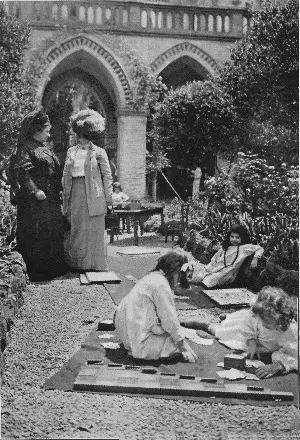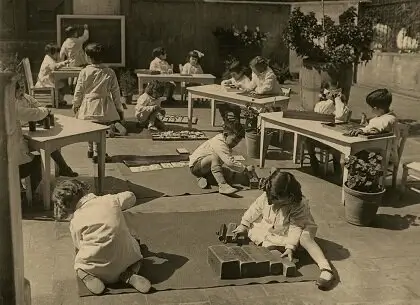Unit 3 (M1): Why we Refer to Montessori Education as Scientific Pedagogy?
- – Please watch the video presentation above to understand why we refer to Montessori Education as Scientific Pedagogy and continue reading the lesson below.
- – Refer to Chapter One of Module 1 (Introduction to Montessori) for further reading.
Montessori Education as Scientific Pedagogy
Why is the Montessori Method referred to as the Scientific Pedagogy?
The Montessori method is often referred to as “scientific pedagogy” because it is grounded in scientific observation, experimentation, and evidence-based practices that guide the learning process. Here’s why:
1. Observation-Based Approach
Maria Montessori, the founder of the Montessori method, based her educational principles on careful observations of children’s natural behaviors. She spent years observing children in different settings, noting how they interacted with their environment and each other, and how they responded to various stimuli. This method emphasizes observing each child to understand their unique needs, interests, and developmental stages, then tailoring the learning experience accordingly.

2. Developmental Focus
Montessori’s approach was heavily influenced by the scientific study of child development, particularly the work of psychologists and biologists of her time. She believed that education should align with the stages of a child’s physical and psychological development. The Montessori method is designed to support natural growth patterns rather than imposing rigid academic structures, which reflects her scientific understanding of how children develop.
3. Experimental Setup
Montessori classrooms are often described as “prepared environments” that function much like laboratories, where materials, activities, and interactions are carefully designed to support specific developmental goals. These environments are experimental in the sense that they allow children to explore, discover, and learn independently. Montessori educators adjust and refine these environments based on continuous observations of how the children engage with them, much like a scientist refines an experiment based on the outcomes.
4. Use of Scientific Tools and Materials
The Montessori method includes specific, purpose-designed learning materials (often called “didactic materials”) that are intended to help children develop skills in a hands-on, sensory way. These materials were created through trial and error, with Montessori using a scientific approach to assess which materials best-supported children’s learning. The materials were designed to promote concentration, independence, and self-correction—qualities that Montessori observed children naturally strive for.

5. Data-Driven and Empirical
Montessori gathered data from her observations and made adjustments to her methods based on empirical evidence. She systematically documented her findings and used these insights to refine her approach, similar to the way a scientist tests a hypothesis and refines it over time. This empirical, data-driven refinement of the method is a key reason why it’s considered scientific.
6. Influence of Experimental Psychology
Montessori’s method was also influenced by the scientific disciplines of experimental psychology and anthropology. She applied psychological principles to understanding how children learn and designed her pedagogy to respond to children’s intrinsic learning processes rather than imposing adult-driven expectations.
7. Self-Correction and Feedback Loops
A scientific pedagogy involves mechanisms of self-correction and adaptation based on feedback. In Montessori classrooms, the environment is designed to allow children to assess their own progress. The materials are often self-correcting, meaning children can independently identify mistakes and correct them without constant adult intervention. This promotes independent thinking and learning, much like a scientific process where hypotheses are tested and refined based on outcomes.
In summary, the Montessori method is called “scientific pedagogy” because it is grounded in scientific observation, data collection, developmental psychology, and empirical refinement. It relies on continuous experimentation and adapts based on children’s natural tendencies and responses to their environment. This scientific framework sets it apart from more traditional, prescriptive forms of education.
